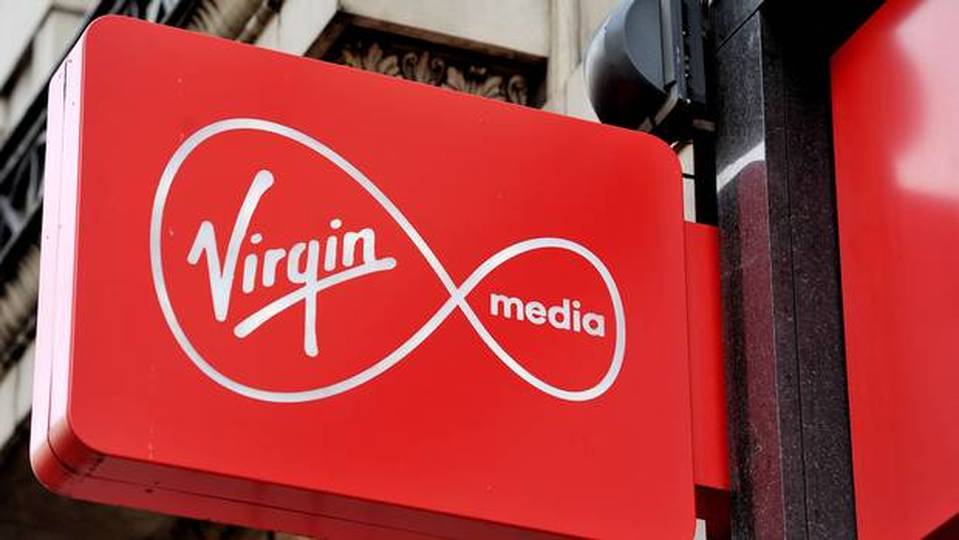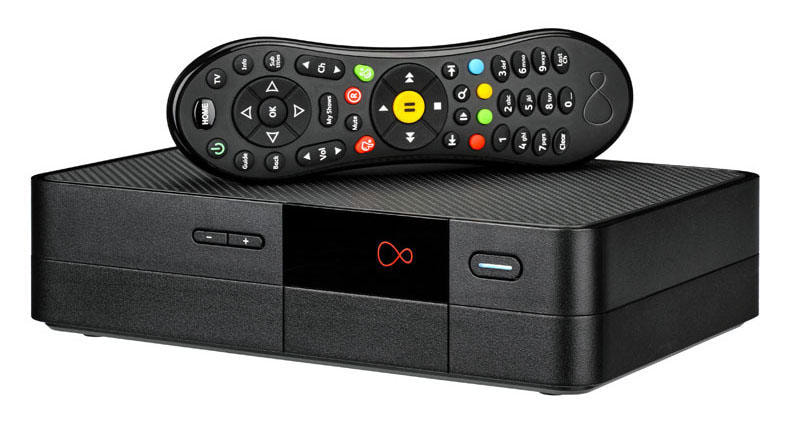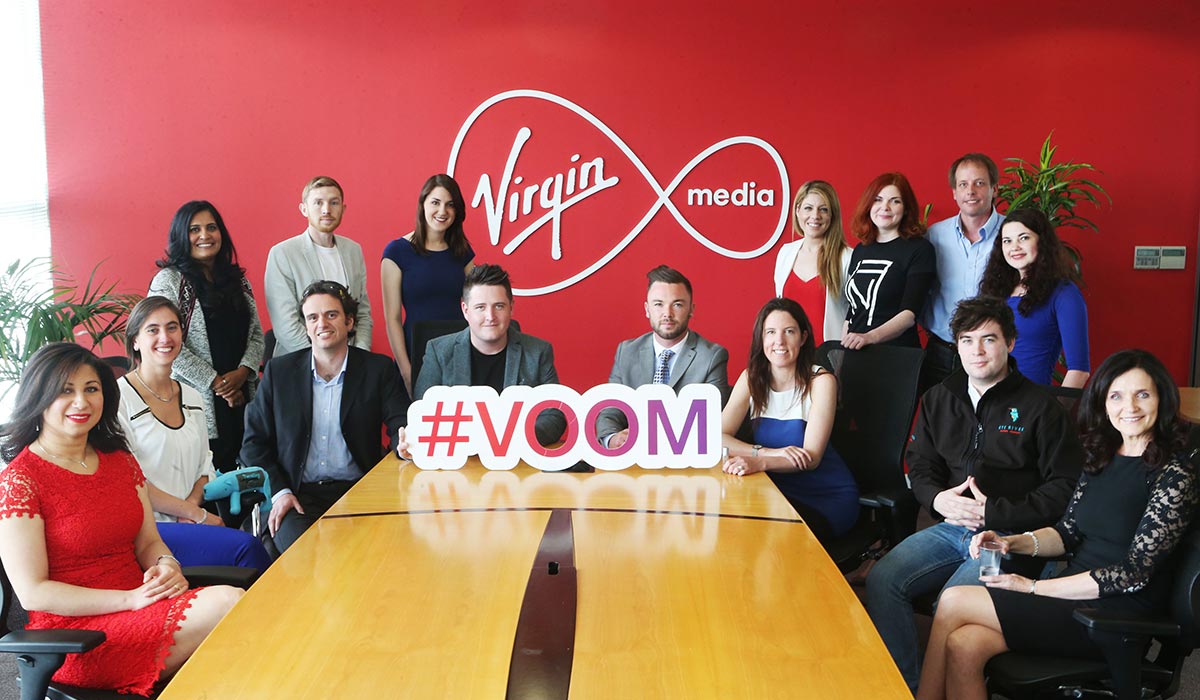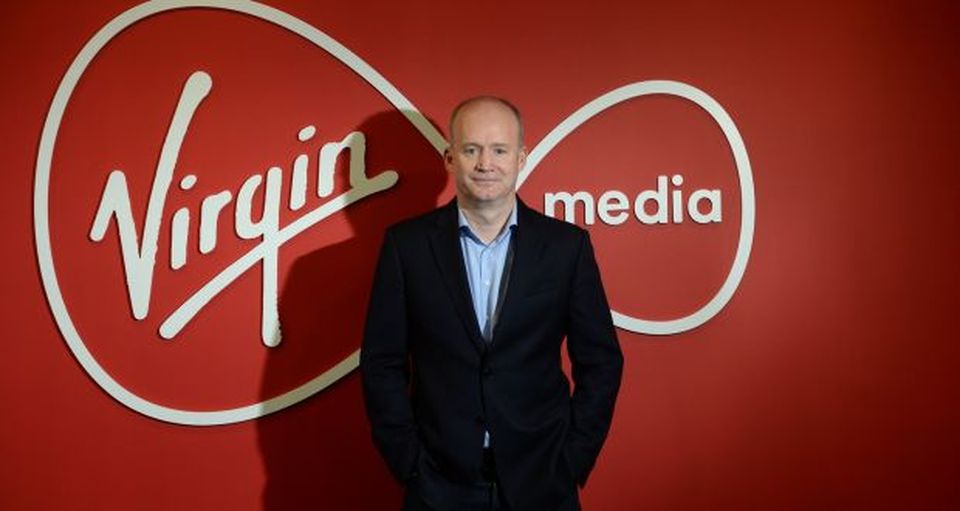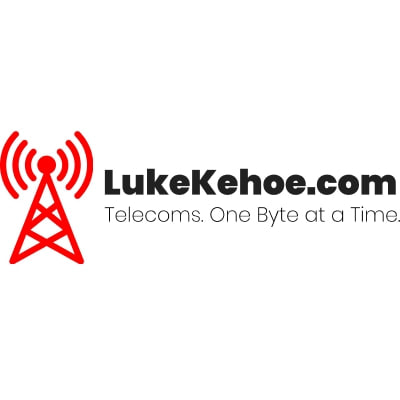Virgin Media: The Company that changed how we think about Broadband in Ireland
With the acquisition of TV3, development of an ultra-competitive MVNO and rapid expansion of its broadband network, Virgin Media is solidifying its presence in the Irish telecommunications market.
Published 27/08/18
In a market dominated by a monopoly, Virgin Media has slowly developed its own ecosystem of services which work in tandem with one another to attract and retain customers. That monopoly, a monopoly which has stifled innovation in the broadband market in Ireland is controlled by eir. However, Virgin Media has managed to survive, and by many accounts, excel, in a market that is routinely deemed impenetrable for newcomers.
Slowly but surely, Virgin Media has grabbed market share from eir, primarily focusing its efforts on lucrative urban areas such as large towns and cities. In these areas, the company has rolled out its Fibre To The Cabinet (FTTC) broadband, boasting speeds far in excess of those enjoyed by eir's customers (360Mbps for Virgin customers, 100Mbps for eir customers). While these speeds may pail in comparison to those being rolled out by SIRO with its 100% fibre-optic broadband network, Virgin Media was the first company in this country to fulfil the broadband needs of our people.
More recently, Virgin Media was given the opportunity to venture into mobile when EU Competition Authorities ensured Three facilitated the entrance of two new Irish MVNO's following its merger with O2 in 2015. Virgin Mobile serves over 60,000 consumers using Three's network, and the company has introduced incredibly competitive plans costing as little as €5 euro monthly for unlimited data. The addition of mobile to Virgin's portfolio of services means the company is now a full-fledged quad-play provider, similar to Vodafone and eir.
Perhaps the most dramatic move that Virgin Media has made since its inception is its acquisition and rebranding of TV3, the second largest free to view TV channel in this country. By dumping the TV3 brand and replacing it with Virgin Media, the company is subtly opening its brand up to a plethora of TV viewers who may be oblivious to Virgin's existence. The takeover of TV3 follows a trend which we have witnessed across the globe, a blurring of lines between telecoms and media companies.
Slowly but surely, Virgin Media has grabbed market share from eir, primarily focusing its efforts on lucrative urban areas such as large towns and cities. In these areas, the company has rolled out its Fibre To The Cabinet (FTTC) broadband, boasting speeds far in excess of those enjoyed by eir's customers (360Mbps for Virgin customers, 100Mbps for eir customers). While these speeds may pail in comparison to those being rolled out by SIRO with its 100% fibre-optic broadband network, Virgin Media was the first company in this country to fulfil the broadband needs of our people.
More recently, Virgin Media was given the opportunity to venture into mobile when EU Competition Authorities ensured Three facilitated the entrance of two new Irish MVNO's following its merger with O2 in 2015. Virgin Mobile serves over 60,000 consumers using Three's network, and the company has introduced incredibly competitive plans costing as little as €5 euro monthly for unlimited data. The addition of mobile to Virgin's portfolio of services means the company is now a full-fledged quad-play provider, similar to Vodafone and eir.
Perhaps the most dramatic move that Virgin Media has made since its inception is its acquisition and rebranding of TV3, the second largest free to view TV channel in this country. By dumping the TV3 brand and replacing it with Virgin Media, the company is subtly opening its brand up to a plethora of TV viewers who may be oblivious to Virgin's existence. The takeover of TV3 follows a trend which we have witnessed across the globe, a blurring of lines between telecoms and media companies.
A Broadband Network that has connected our Cities
Virgin Media's broadband base, topping more than 370,000 customers, is the second largest in Ireland behind eir. There is a simple reason for the company's success: The decision to offer high-speed broadband in urban areas where eir has neglected in recent years. Ookla has rated Virgin Media as the fastest broadband network on this island, year after year. The company provides Fibre-To-The-Cabinet (FTTC) speeds reaching up to 360Mbps using DOCSIS 3.0 (Data Over Cable Service Interface Specification), an unparalleled speed for this method of broadband distribution in Ireland. On the other hand, the broadband monopoly, eir, manages speeds of up to 100Mbps in the same areas because of the company's use of copper from the cabinet to home.
For households that stream Netflix, play some online games or send a few WhatsApp messages, the difference in experience between using eir's network and Virgin's will be minimal. However, Virgin's consumers will begin to reap the benefits of these enhanced speeds as our broadband needs continue to grow stronger. Not only will Virgin's network fair better during peak times, mitigating congestion issues, the company's network will be future-proofed for significantly longer than eir's urban broadband network.
Virgin Media's network is just a drop in a pond compared to the scale of eir's network, but that doesn't matter as much as you would think. The smaller scale means Virgin's opex is significantly lower than that of eir's, and the company can easily upgrade and resolve issues on its network when the time arises. But, perhaps the most important advantage which Virgin holds over eir is the fact that its network isn't regulated by ComReg in the same way that Eir's is. This is because eir, with its controversial wholesale division (open eir), allows companies to piggy back on its network for a price and holds a universal service obligation (USO).
The growth of Virgin Media in urban areas has been of great determent to eir, which continues to lose ground in the most lucrative place to operate as a broadband provider. Going forward, eir will need to thoroughly review its position in urban markets if it wants to continue competing with Virgin Media. The company needs to begin rolling out Fibre-To-The-Home (FTTH) in these markets, as it has in more rural areas.
As I've mentioned already, perhaps the only barrier to the amount of customers that Virgin Media can amalgamate is the scale of its network, which covers over 900,000 Irish premises and will breach one million premises within two years. There are many large towns which can only use eir's FTTC solution, putting the company at a disadvantage here. But, trust me, if Virgin Media decides to rock up in a new town, you can be sure that people won't be afraid to flock in their droves from eir's ageing network.
In the most simplest of explanations, Virgin Media has set the standard for great broadband connectivity in Ireland, pushing its competitors to innovate and unlock the potential of the Internet for more and more people. The company provides more WiFi hotspots (over 300,000), which are free for Virgin's broadband customers to use, in this country than all of its major competitors combined. There is no other company in Ireland that provides broadband this fast in more urban locations than Virgin Media.
For households that stream Netflix, play some online games or send a few WhatsApp messages, the difference in experience between using eir's network and Virgin's will be minimal. However, Virgin's consumers will begin to reap the benefits of these enhanced speeds as our broadband needs continue to grow stronger. Not only will Virgin's network fair better during peak times, mitigating congestion issues, the company's network will be future-proofed for significantly longer than eir's urban broadband network.
Virgin Media's network is just a drop in a pond compared to the scale of eir's network, but that doesn't matter as much as you would think. The smaller scale means Virgin's opex is significantly lower than that of eir's, and the company can easily upgrade and resolve issues on its network when the time arises. But, perhaps the most important advantage which Virgin holds over eir is the fact that its network isn't regulated by ComReg in the same way that Eir's is. This is because eir, with its controversial wholesale division (open eir), allows companies to piggy back on its network for a price and holds a universal service obligation (USO).
The growth of Virgin Media in urban areas has been of great determent to eir, which continues to lose ground in the most lucrative place to operate as a broadband provider. Going forward, eir will need to thoroughly review its position in urban markets if it wants to continue competing with Virgin Media. The company needs to begin rolling out Fibre-To-The-Home (FTTH) in these markets, as it has in more rural areas.
As I've mentioned already, perhaps the only barrier to the amount of customers that Virgin Media can amalgamate is the scale of its network, which covers over 900,000 Irish premises and will breach one million premises within two years. There are many large towns which can only use eir's FTTC solution, putting the company at a disadvantage here. But, trust me, if Virgin Media decides to rock up in a new town, you can be sure that people won't be afraid to flock in their droves from eir's ageing network.
In the most simplest of explanations, Virgin Media has set the standard for great broadband connectivity in Ireland, pushing its competitors to innovate and unlock the potential of the Internet for more and more people. The company provides more WiFi hotspots (over 300,000), which are free for Virgin's broadband customers to use, in this country than all of its major competitors combined. There is no other company in Ireland that provides broadband this fast in more urban locations than Virgin Media.
A Cable TV Provider trying to Transform
Virgin Media dominates the cable TV industry in Ireland, being the largest cable TV provider with over 270,000 customers. While the company doesn't serve quite as many people as Sky does with its satellite TV service, the company manages to trump other cable TV offerings from competitors such as Vodafone and eir.
However, it is widley recognised that cable TV providers like Virgin Media are experiencing a decline in subscribers thanks to the rise of much cheaper on-demand services such as Netflix. This decline has also affected Virgin Media, which has seen its cable TV subscriber base shrink quarter after quarter. The primary reason for this is as explained above, but also because Sky has ramped up its TV offerings with the introduction of Sky Q, a new take on the TV experience which priorities on-demand content, ultra-high definition streams and exclusive content.
For the most part, Virgin Media has been unable to compete with Sky because of a lack of unique selling points. Sky excels in this aspect, constantly evolving its original content offerings such as Sky Sports, Sky Movies and Sky Atlantic. But, with TV3 now Virgin Media TV, the company has a unique chance to revive its TV subscriptions. Virgin Media now controls three TV channels, and the company can use these to push its services to more customers than ever before.
For example, TV3 previously aired soccer matches and other sporting occasions free to view, but these matches are now broadcasted on a new Virgin Media Sport Channel which is exclusive to Virgin Media's TV customers. This will inevitably entice more customers to sign up for the company's cable TV service. Furthermore, the company is beefing up its range of box sets and Virgin Movies channel to rival Sky. These actions, combined with the company's efforts to increase the number of channels available on-demand in the company's Virgin TV Anywhere mobile app are ensuring that Virgin Media's customers can enjoy their own fair share of exclusive content.
I've mentioned this in the past quite prominently: When a telecoms company such as Virgin Media acquires a media company such as TV3, the combined company will utilise their broadband network to act as the distributor of services, a conveyor belt in the most basic concept. Other than attracting more customers to Virgin Media's TV service, the rebranding of TV3 will lower the companies churn rate by adding more value to customer's plans. This, along with the company's planned introduction of a new TV box called Eos next year, will work to stop the bleeding of customers from Virgin Media's TV service.
However, even with all of these enhancements to the TV experience, Virgin Media cannot change the fact that the cable TV industry, as a whole, is experiencing a decline that will only continue with time. I believe the company has recognised this and diversified its business as a result. Examples of this can be seen with the company's move into mobile and new broadband packages which include broadband only, without TV and landline.
However, it is widley recognised that cable TV providers like Virgin Media are experiencing a decline in subscribers thanks to the rise of much cheaper on-demand services such as Netflix. This decline has also affected Virgin Media, which has seen its cable TV subscriber base shrink quarter after quarter. The primary reason for this is as explained above, but also because Sky has ramped up its TV offerings with the introduction of Sky Q, a new take on the TV experience which priorities on-demand content, ultra-high definition streams and exclusive content.
For the most part, Virgin Media has been unable to compete with Sky because of a lack of unique selling points. Sky excels in this aspect, constantly evolving its original content offerings such as Sky Sports, Sky Movies and Sky Atlantic. But, with TV3 now Virgin Media TV, the company has a unique chance to revive its TV subscriptions. Virgin Media now controls three TV channels, and the company can use these to push its services to more customers than ever before.
For example, TV3 previously aired soccer matches and other sporting occasions free to view, but these matches are now broadcasted on a new Virgin Media Sport Channel which is exclusive to Virgin Media's TV customers. This will inevitably entice more customers to sign up for the company's cable TV service. Furthermore, the company is beefing up its range of box sets and Virgin Movies channel to rival Sky. These actions, combined with the company's efforts to increase the number of channels available on-demand in the company's Virgin TV Anywhere mobile app are ensuring that Virgin Media's customers can enjoy their own fair share of exclusive content.
I've mentioned this in the past quite prominently: When a telecoms company such as Virgin Media acquires a media company such as TV3, the combined company will utilise their broadband network to act as the distributor of services, a conveyor belt in the most basic concept. Other than attracting more customers to Virgin Media's TV service, the rebranding of TV3 will lower the companies churn rate by adding more value to customer's plans. This, along with the company's planned introduction of a new TV box called Eos next year, will work to stop the bleeding of customers from Virgin Media's TV service.
However, even with all of these enhancements to the TV experience, Virgin Media cannot change the fact that the cable TV industry, as a whole, is experiencing a decline that will only continue with time. I believe the company has recognised this and diversified its business as a result. Examples of this can be seen with the company's move into mobile and new broadband packages which include broadband only, without TV and landline.
AN MVNO Bombarding Consumers with Cut-Throat Prices
Virgin Mobile now serves over 65,000 customers with 2G, 3G and 4G services by piggybacking on Three's network. As explained earlier, the entrance of Virgin Media as an MVNO in Ireland came as a direct result of Three's disastrous merger with O2. The company set out with a plan to upend the Irish mobile market by offering cut-throat prices that would diminish average revenue per user (APRU) figures.
While the company initially claimed its goal was to make shockwaves in the Irish mobile market, I think those statements were a little too ambitious. The company certainly hasn't threatened the might of Vodafone, which controls the largest base of mobile customers in Ireland and rakes in huge profits from its expensive plans. Part of the reason for the unwillingness of Vodafone's customers to move to an MVNO such as Virgin Mobile which clearly offer better value is the fact that the company uses Three's network, which has historically been fraught with issues.
That said, Three's network has improved considerably and this will help Virgin Mobile to expand its customer base. But, it should be clear by now that offering excellent pricing alone isn't enough to attract new customers. The demise of iD Mobile, Dixon's MVNO that was set up at the same time as Virgin Mobile, is a prefect example of this.
Lucky for Virgin Media, its mobile division didn't share the same fate as that of iD Mobile. There are several reasons for this, besides competitive pricing. For one, the addition of mobile to Virgin's portfolio of services has allowed the company to bring some of its broadband customers to Virgin Mobile by offering discounts for existing customers. As well as this, Virgin offers dual-play, triple-play and quad-play bundles that include a combination of mobile, broadband, TV and landline. As I've mentioned, the decline of TV and landline will leave Virgin Media with broadband and mobile, allowing the company to offer dual-play bundles in the future.
Virgin Mobile's APRU is obviously significantly lower than that of Vodafone and Three, and this will put pressure on the company going forward. Offering cut-throat prices all the time just isn't a sustainable business model as costs will inevitably outweigh revenues. There is very little wiggle left for Virgin Mobile in terms of pricing. The company will have to find new ways of adding value to customers plans. These new methods could include developing a loyalty programme, bundling subscriptions to a service such as Spotify or including free access to Virgin Media Sports.
While the company initially claimed its goal was to make shockwaves in the Irish mobile market, I think those statements were a little too ambitious. The company certainly hasn't threatened the might of Vodafone, which controls the largest base of mobile customers in Ireland and rakes in huge profits from its expensive plans. Part of the reason for the unwillingness of Vodafone's customers to move to an MVNO such as Virgin Mobile which clearly offer better value is the fact that the company uses Three's network, which has historically been fraught with issues.
That said, Three's network has improved considerably and this will help Virgin Mobile to expand its customer base. But, it should be clear by now that offering excellent pricing alone isn't enough to attract new customers. The demise of iD Mobile, Dixon's MVNO that was set up at the same time as Virgin Mobile, is a prefect example of this.
Lucky for Virgin Media, its mobile division didn't share the same fate as that of iD Mobile. There are several reasons for this, besides competitive pricing. For one, the addition of mobile to Virgin's portfolio of services has allowed the company to bring some of its broadband customers to Virgin Mobile by offering discounts for existing customers. As well as this, Virgin offers dual-play, triple-play and quad-play bundles that include a combination of mobile, broadband, TV and landline. As I've mentioned, the decline of TV and landline will leave Virgin Media with broadband and mobile, allowing the company to offer dual-play bundles in the future.
Virgin Mobile's APRU is obviously significantly lower than that of Vodafone and Three, and this will put pressure on the company going forward. Offering cut-throat prices all the time just isn't a sustainable business model as costs will inevitably outweigh revenues. There is very little wiggle left for Virgin Mobile in terms of pricing. The company will have to find new ways of adding value to customers plans. These new methods could include developing a loyalty programme, bundling subscriptions to a service such as Spotify or including free access to Virgin Media Sports.
Conclusion: Virgin Media needs to focus on Broadband and Mobile
The telecoms industry is a fast-paced industry that shifts from one completely new technology to another in just a few short years. In such an industry, competition and innovation is bound to be fierce, and companies desperately need to be agile in order to keep up with the pace of technological change.
Virgin Media has proven itself to be an agile and versatile company with the ability to adapt to changing trends. A prime example of this is its broadband network, a network which is fully owned and controlled by Virgin Media, giving it the unique opportunity to upgrade the network when the company wishes without having to worry about regulatory blowbacks like eir does. Furthermore, the company's acquisition and rebranding of TV3 is a bold move that will open up Virgin Media's brand to more people than ever before and stem losses from a declining TV service with a new sports channel exclusive to Virgin's TV customers.
The company's move into mobile has allowed it to become a total communications provider, similar to Vodafone and eir. Consumers have been enticed with unparalleled value and steep discounts for existing Virgin Media customers. The MVNO will face some significant challenges going forward, stemming from rock-bottom APRU figures. However, this may not be of critical concern as dual-play offerings lower churn rates and enhance customer loyalty.
Finally, the most important effect which Virgin Media has is the provision of a new idea about what great broadband actually means. With eir's urban broadband network standing still and rapidly approaching a state of tatters, Virgin Media will continue to grab market share as it provides top-quality Internet access to more than 900,000 premises on the island of Ireland.
Virgin Media has proven itself to be an agile and versatile company with the ability to adapt to changing trends. A prime example of this is its broadband network, a network which is fully owned and controlled by Virgin Media, giving it the unique opportunity to upgrade the network when the company wishes without having to worry about regulatory blowbacks like eir does. Furthermore, the company's acquisition and rebranding of TV3 is a bold move that will open up Virgin Media's brand to more people than ever before and stem losses from a declining TV service with a new sports channel exclusive to Virgin's TV customers.
The company's move into mobile has allowed it to become a total communications provider, similar to Vodafone and eir. Consumers have been enticed with unparalleled value and steep discounts for existing Virgin Media customers. The MVNO will face some significant challenges going forward, stemming from rock-bottom APRU figures. However, this may not be of critical concern as dual-play offerings lower churn rates and enhance customer loyalty.
Finally, the most important effect which Virgin Media has is the provision of a new idea about what great broadband actually means. With eir's urban broadband network standing still and rapidly approaching a state of tatters, Virgin Media will continue to grab market share as it provides top-quality Internet access to more than 900,000 premises on the island of Ireland.
